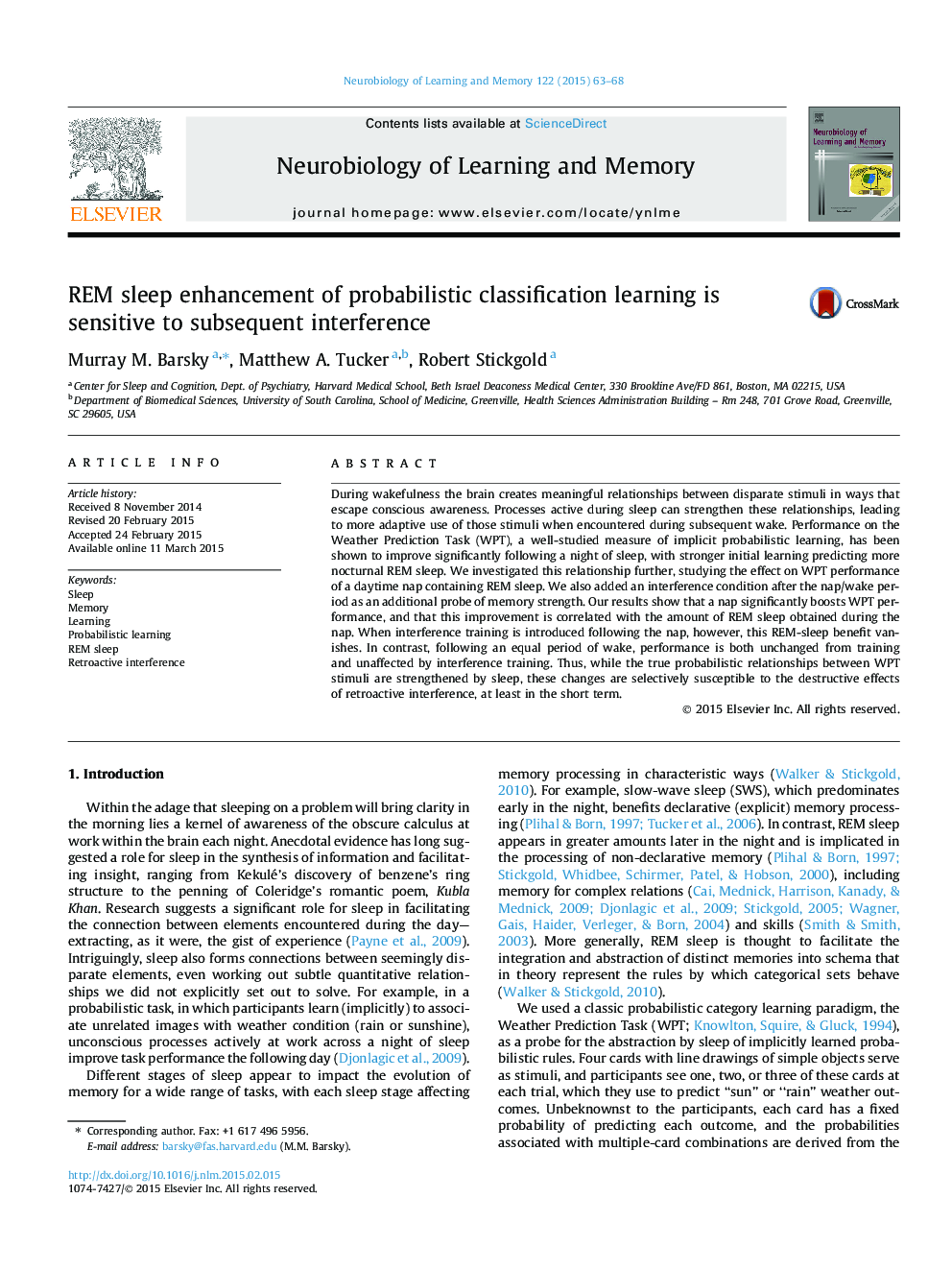| Article ID | Journal | Published Year | Pages | File Type |
|---|---|---|---|---|
| 7299437 | Neurobiology of Learning and Memory | 2015 | 6 Pages |
Abstract
During wakefulness the brain creates meaningful relationships between disparate stimuli in ways that escape conscious awareness. Processes active during sleep can strengthen these relationships, leading to more adaptive use of those stimuli when encountered during subsequent wake. Performance on the Weather Prediction Task (WPT), a well-studied measure of implicit probabilistic learning, has been shown to improve significantly following a night of sleep, with stronger initial learning predicting more nocturnal REM sleep. We investigated this relationship further, studying the effect on WPT performance of a daytime nap containing REM sleep. We also added an interference condition after the nap/wake period as an additional probe of memory strength. Our results show that a nap significantly boosts WPT performance, and that this improvement is correlated with the amount of REM sleep obtained during the nap. When interference training is introduced following the nap, however, this REM-sleep benefit vanishes. In contrast, following an equal period of wake, performance is both unchanged from training and unaffected by interference training. Thus, while the true probabilistic relationships between WPT stimuli are strengthened by sleep, these changes are selectively susceptible to the destructive effects of retroactive interference, at least in the short term.
Related Topics
Life Sciences
Neuroscience
Behavioral Neuroscience
Authors
Murray M. Barsky, Matthew A. Tucker, Robert Stickgold,
